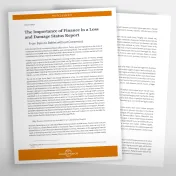
- Please find the PDF as download in english, french and spanish language below -
Many UNFCCC stakeholders see climate finance as one of the linchpins holding together the entire climate negotiation process, for several reasons. First, climate finance is key to closing gaps: delivering funds to implement mitigation and adaptation activities is required to ensure the highest possible efforts. For mitigation, this means keeping the planet on a pathway that limits global warming to 2°C or less; for adaptation, this means enabling climate-resilient development. Second, the provision of climate finance fulfils developed countries’ financial commitments to developing countries under UNFCCC obligations. Third, some stakeholders maintain that developed countries, which provide the means to implement climate change projects (finance, technology and capacity building) will determine developing countries’ level of commitment and buy-in to a new climate deal in 2015.
There is only one year left before the COP in Paris, where the Parties are expected to adopt a protocol – another legal instrument or an agreed outcome with legal force under the UNFCCC – that is applicable to all Parties. There are few political openings left to reassure developing countries that their domestic climate actions will receive commensurate international support. In this context, the COP in Lima is a critical opportunity to provide the necessary predictability, which is currently missing in the negotiations. This guide maps several finance issues on the agenda of the COP and the Conference of the Parties serving as the meeting of Parties to the Kyoto Protocol (CMP), by providing information on the state of negotiations on those issues, in order to endow negotiators and other relevant stakeholders with key information to participate actively in the negotiations in Lima.




